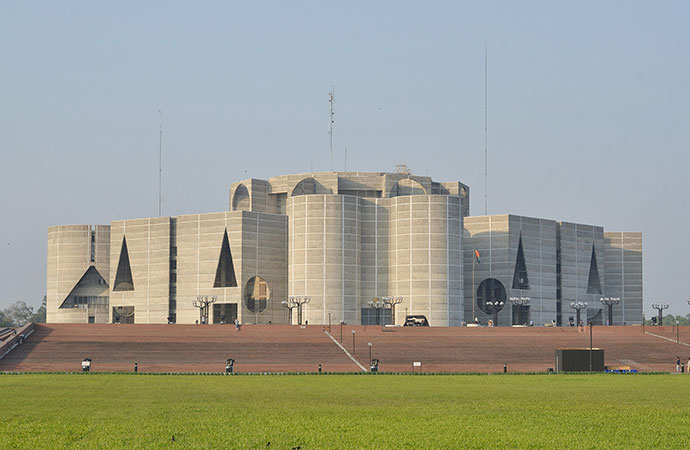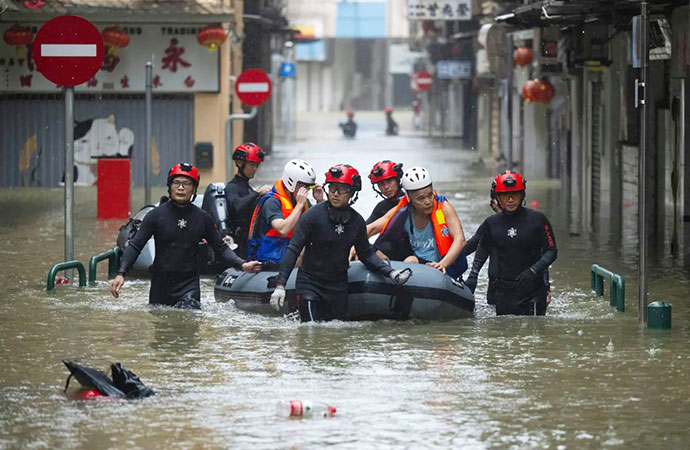Column

Photo: bn.wikipedia.org
On 9 August 2024, I wrote an article in an English daily calling for a new social contract. I specifically called for "a legally binding umbrella political agreement with responsible political parties, bringing together registered political parties. This agreement can reflect political consensus and a commitment to a new social contract based on national unity". One year on, the interim government has produced a July Charter with a set of reforms awaiting enactment.
The July Charter aims for a new social contract in Bangladesh. It is expected to be signed by political parties, student groups and organizations which spearheaded the Monsoon Revolution in 2024. The BNP and Jamaat are among the likely signatories of the charter. The Awami League and its leftwing allies, as well as factions of the centre-right Jatiya Party, have been excluded from the charter. The newly formed National Citizen Party (NCP) has championed the July Charter as an outcome of the Anti-Discrimination Student Movement which led the revolution in 2024.
The charter was preceded by a July Declaration to mark the first anniversary of last year's revolution. The July Declaration recalled that "the people of Bangladesh made the utmost sacrifice through a long struggle to materialize a liberal democratic state in this land based on equality, human dignity and social justice as proclaimed in the Declaration of Independence". The July Declaration is the first significant political document in Bangladesh which explicitly promotes the concept of a liberal democratic state.
The July Charter envisages a two-year timeline to implement its recommendations. The NCP has called for an election to a Constituent Assembly to draft a new constitution. But the July Charter speaks of reforms to the current Constitution, electoral system, judiciary, public administration, police, and anti-corruption commission. Evidently, the NCP is out of sync with the July Charter. A compromise may be struck in the form of a two-year parliament when the next general election happens. I have argued that a special parliament can convene for two years to implement the reforms of the July Charter before elections are held for the succeeding 14th parliament. The incoming 13th parliament would have to focus on reforms.
National unity is essential for the success of any reform effort. Bangladesh switched to parliamentary democracy after the fall of Ershad because its political parties achieved a broad national consensus on constitutional reform. During the fifth parliament in 1991, an All Party Select Committee reached consensus to enact the 11th and 12th amendments to the Constitution. The 11th amendment validated the actions of Justice Shahabuddin Ahmed's caretaker government. The 12th amendment reintroduced the parliamentary system and ended the presidential system.
Without national unity, there is always the risk that opponents of the current dispensation will declare the reforms as illegitimate and illegal in the future. In Bangladesh's toxic political culture, political parties have sought to destroy the legitimacy of their opponents by declaring past governments as illegitimate. The historical records of entire governments have been wiped out. Pro-Awami League judges on the Supreme Court declared President Zia's constitutional amendments as illegal in the Fifth Amendment Case. Interestingly, the Fourth Amendment, which established a socialist one-party state in 1975, has not been declared illegal even though it destroyed the liberal democratic elements of Bangladesh's founding. Individuals associated with BAKSAL continue to be influential in Bangladesh's civil society.
The July Charter is an opportunity for constitutional renewal. It is rightly pointed out by the NCP and other revolutionary groups that a new political settlement is the demand of the times. But the way to achieve that settlement will be through national unity and consensus, instead of doubling down on repression against the former regime. The restoration of democracy in 1991 did not see a ban on the former ruling party at the time, the Jatiya Party. Instead, the Jatiya Party joined the all-party consensus for switching to parliamentary government. It secured the third highest number of seats during the election for the fifth parliament.
By banning the Awami League, the interim government is at risk of disenfranchising large parts of the electorate. Obstructing the Jatiya Party, which was once a mighty political force and has now been reduced to factionalism, does not bode well for liberal democratic principles. Exclusion hints at a form of political apartheid. Amid reports of continued custodial deaths and mass arrests, one is tempted to ask: is fascism flourishing in Bangladesh?
Umran Chowdhury is Assistant Editor of the Dhaka Courier and a Research Associate at the Cosmos Foundation and Bay of Bengal Institute.

























Leave a Comment
Recent Posts
Religion and Politics: A Toxic ...
At Dhaka University, cafeteria workers have been told not to wear shor ...
Enayetullah Khan joins AsiaNet ...
AsiaNet’s annual board meeting and forum was held in Singapore, ...
In a New York minute
Many leaders back a UN call to address challenges to ..
Defaulted loans at Non-Bank Financial Institutions ( ..
How the late Zubeen Garg embodied cultural affinitie ..